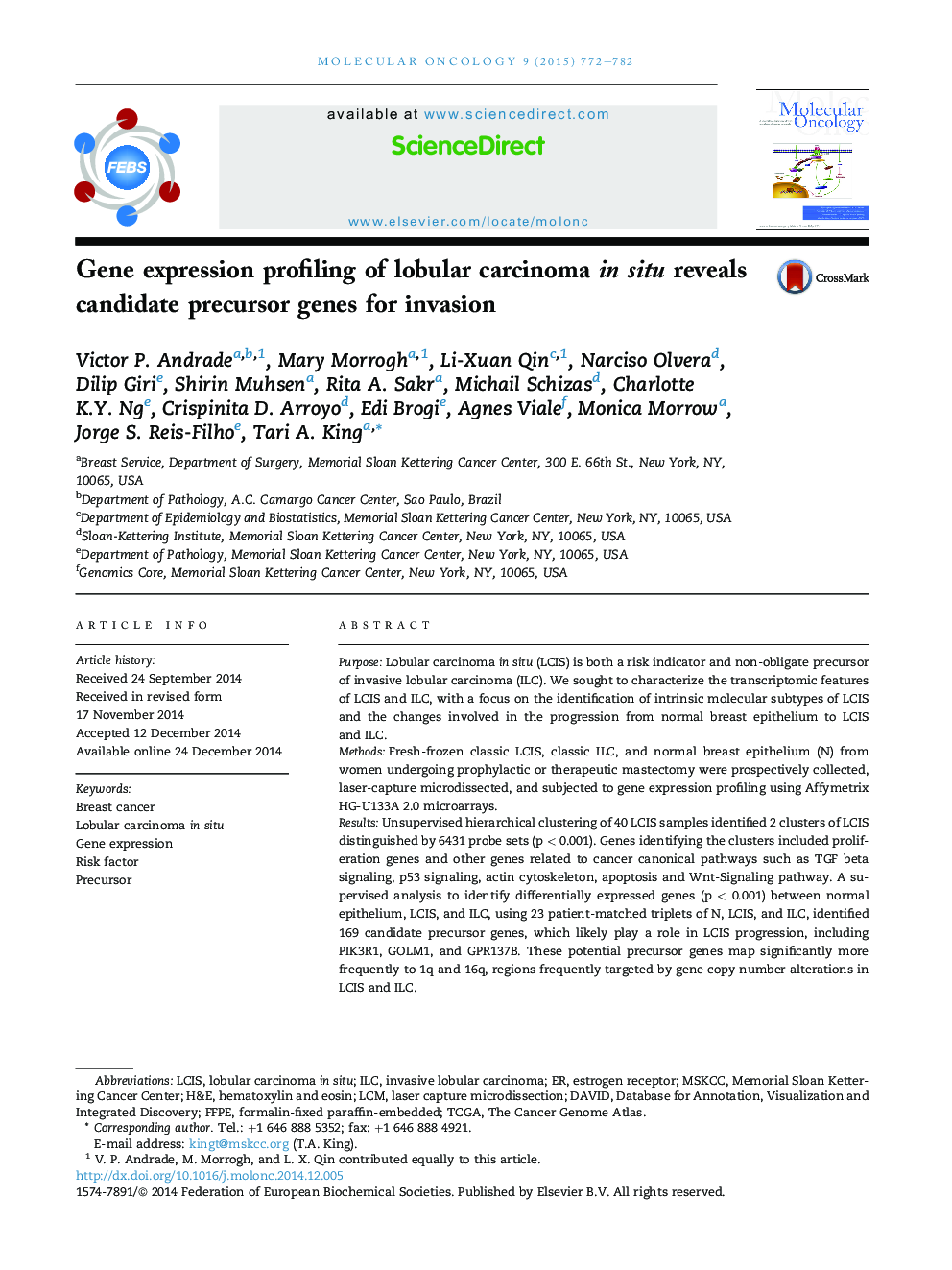| Article ID | Journal | Published Year | Pages | File Type |
|---|---|---|---|---|
| 2145549 | Molecular Oncology | 2015 | 11 Pages |
•Lobular carcinoma in situ (LCIS) is a non-obligate precursor to breast cancer.•We demonstrate that LCIS is heterogeneous at the level of the transcriptome.•Copy number alterations in LCIS and ILC result in gene expression changes.•Candidate precursor genes may play a role in the progression of LCIS.
PurposeLobular carcinoma in situ (LCIS) is both a risk indicator and non-obligate precursor of invasive lobular carcinoma (ILC). We sought to characterize the transcriptomic features of LCIS and ILC, with a focus on the identification of intrinsic molecular subtypes of LCIS and the changes involved in the progression from normal breast epithelium to LCIS and ILC.MethodsFresh-frozen classic LCIS, classic ILC, and normal breast epithelium (N) from women undergoing prophylactic or therapeutic mastectomy were prospectively collected, laser-capture microdissected, and subjected to gene expression profiling using Affymetrix HG-U133A 2.0 microarrays.ResultsUnsupervised hierarchical clustering of 40 LCIS samples identified 2 clusters of LCIS distinguished by 6431 probe sets (p < 0.001). Genes identifying the clusters included proliferation genes and other genes related to cancer canonical pathways such as TGF beta signaling, p53 signaling, actin cytoskeleton, apoptosis and Wnt-Signaling pathway. A supervised analysis to identify differentially expressed genes (p < 0.001) between normal epithelium, LCIS, and ILC, using 23 patient-matched triplets of N, LCIS, and ILC, identified 169 candidate precursor genes, which likely play a role in LCIS progression, including PIK3R1, GOLM1, and GPR137B. These potential precursor genes map significantly more frequently to 1q and 16q, regions frequently targeted by gene copy number alterations in LCIS and ILC.ConclusionHere we demonstrate that classic LCIS is a heterogeneous disease at the transcriptomic level and identify potential precursor genes in lobular carcinogenesis. Understanding the molecular heterogeneity of LCIS and the potential role of these potential precursor genes may help personalize the therapy of patients with LCIS.
